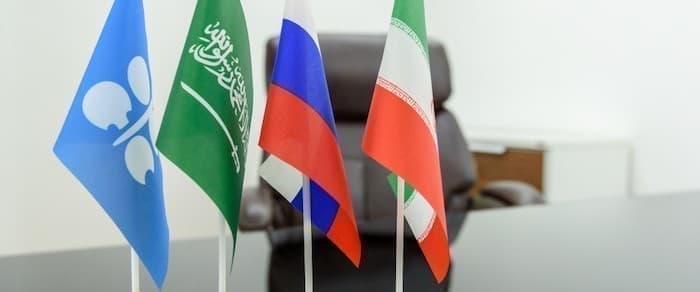The Organisation of Petroleum Exporting Countries is looking for a “fair” price for its crude, Saudi Arabia’s Foreign Minister, Prince Faisal bin Farhan said this week after a meeting with his counterpart from Russia, Sergey Lavrov.
“I would like to assure that we and Russia would like an oil price which is fair to consumers and to producers,” bin Farhan said, adding, “This is what OPEC+ looks to achieve and there is good coordination in this initiative and we continue in working to support what benefits the global economy.”
Lavrov, for his part, noted that the OPEC+ alliance was strong, and there was nothing that could, at this point, undermine the good working relationship between Russia and Saudi Arabia.
Lavrov also said the purpose of the OPEC+ agreement was to restore balance on global oil markets and reduce volatility, saying he hoped that the extended cartel would “find a way to coordinate our actions in such a way as balance the interests of both producers and consumers.”
Finding this balance might prove tricky, however. Most OPEC members would like higher prices—the higher, the better, including Saudi Arabia—while most consumers would prefer much lower prices.
India, for instance, has been particularly vocal in its dissatisfaction with OPEC+ cuts. One of the world’s biggest oil importers repeatedly asked the cartel to reconsider the cuts, most recently warning that rising oil prices would threaten its economic recovery from the pandemic.
Following this warning, India started looking for alternative suppliers to its regular oil partners from the Middle East who are pushing for higher prices.
“We have asked companies to aggressively look for diversification. We cannot be held hostage to the arbitrary decision of Middle East producers. When they wanted to stabilize the market we stood by them,” a government source told Reuters this week.
By Irina Slav for Oilprice.com
More Top Reads From Oilprice.com:
- How Oil Could Go To $100 Per Barrel
- Biden’s Policies Unlikely To Cause Crash In U.S. Oil Production
- Oil Prices Move Higher Despite Another Major Crude Build



















The ‘black gold’ which is the blood of the global economy is depleting quickly. Therefore, its price should be commensurate with its unrivalled value to the world.
In my opinion, a fair oil price ranges from $100-$110 a barrel. Such a price invigorates the global economy and stimulates therefore global oil demand.
And contrary to claims that high oil prices slow down oil demand, both the global economy and global oil demand are stimulated by high oil prices. The rationale is that the global economy is made up of three major chunks: the global investments, the global oil industry and the economies of the oil-producing countries all of which would be invigorated by higher oil prices leading to growth in the global economy and therefore global oil demand.
In 2008 surging global oil demand sent crude prices to $147 but global demand didn’t collapse because of that price but because of the collapse of the US housing market that virtually brought down the global economy and the banking system to their knees thus leading to a collapse of global oil demand.
Saudi Arabia and the overwhelming members of OPEC+ with the exception of Russia need a minimum oil price of $80 to balance their budgets. But with a growing economy, growing world population and surging global oil demand, an $80 oil is too low. That is why $100-$110 oil is a good price range for the global economy, consumers and producers alike. I feel confident that we will see we see such a price again within the next three years.
Dr Mamdouh G Salameh
International Oil Economist
Visiting Professor of Energy Economics at ESCP Europe Business School, London